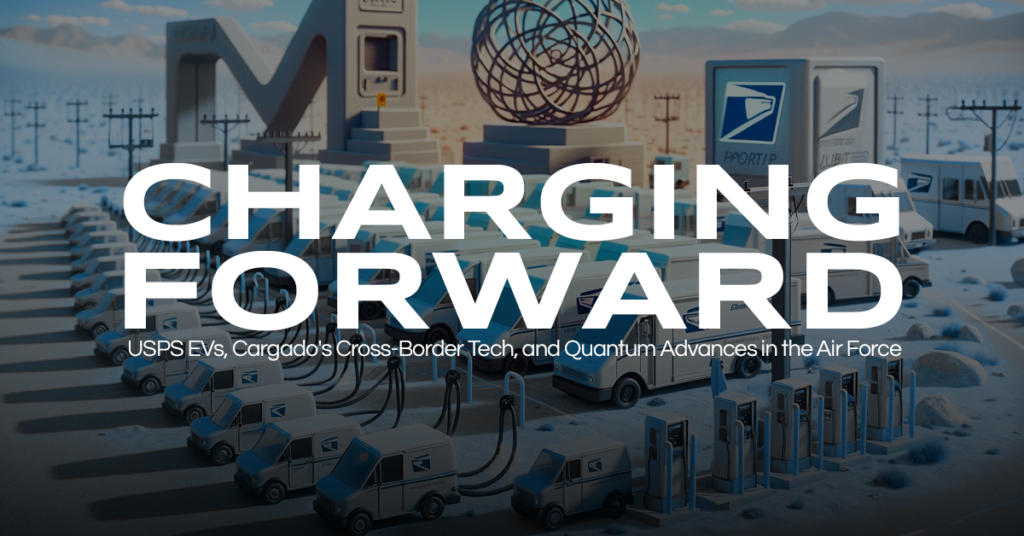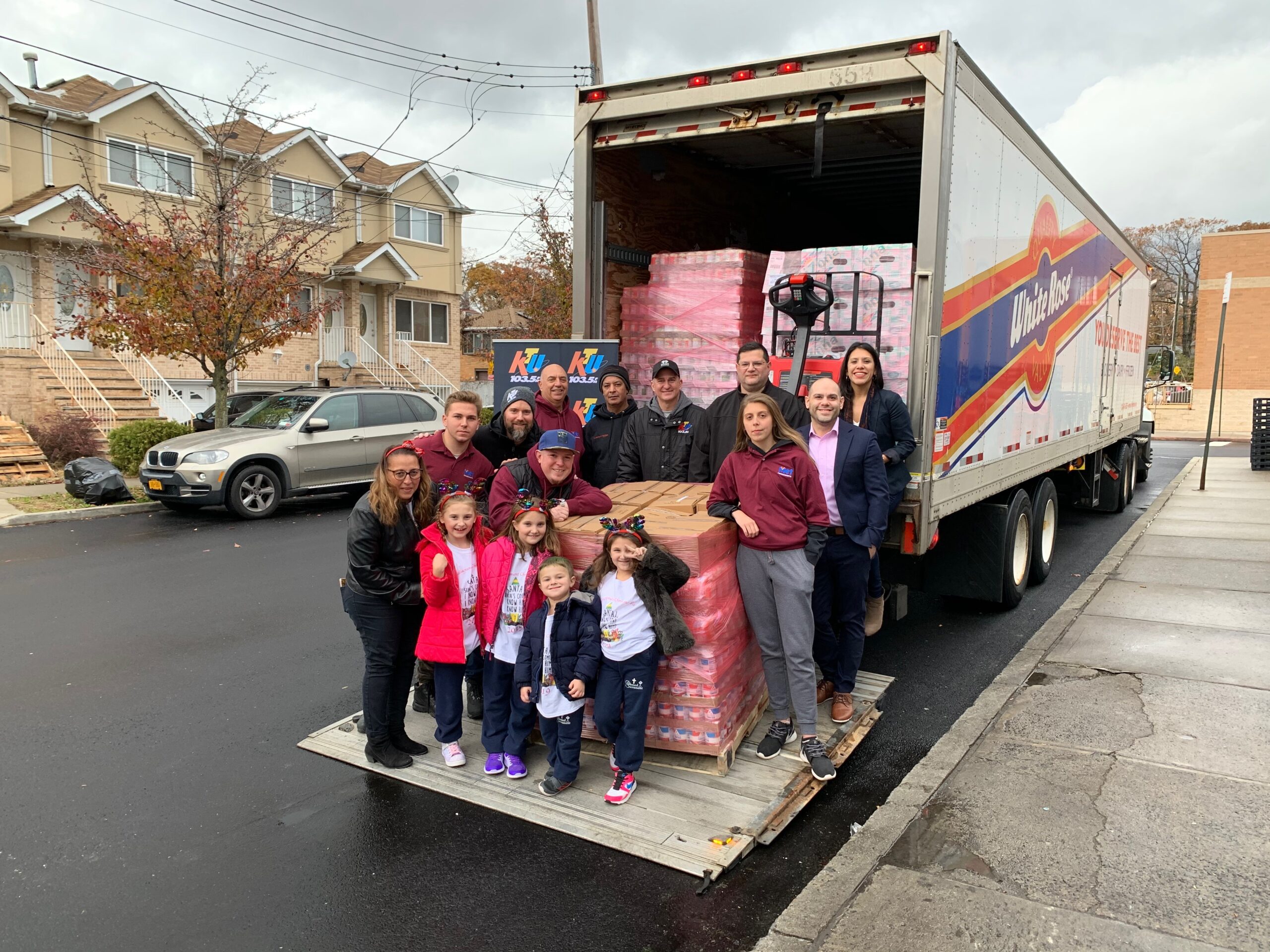
Welcome to your weekly recap, the place where we delve into the latest happenings in the trucking and logistics sector. This roundup brings you closer to the heart of the industry, featuring stories that range from the United States Postal Service’s leap into the electric vehicle era to groundbreaking endeavors in cross-border logistics and the U.S. Air Force’s venture into the realm of quantum computing. These stories not only represent technological leaps but also reflect the industry’s ongoing commitment to innovation and adaptation in a rapidly evolving global landscape. Let’s explore these engaging narratives and discover how they are reshaping the future of trucking and logistics.

A New Partnership Rolls In
Canoo, an electric-vehicle startup based in Torrance, California, is making waves with its latest announcement. The United States Postal Service (USPS) has decided to buy six of Canoo’s innovative electric vans. These LDV 190 vans, boasting a single electric motor and offering more space than compact counterparts like the Ford Transit Connect, are set to be delivered in the first quarter of this year. This move is a significant leap for Canoo and highlights USPS’s commitment to expanding its EV fleet.
Charging Up for a Greener Future
The USPS isn’t stopping at Canoo’s vans. They’ve unveiled ambitious plans to install over 14,000 charging stations at delivery centers nationwide, a clear sign of their dedication to an electric future. Alongside Canoo, USPS is also adding 9250 Ford E-Transits to their fleet, bridging the gap until the arrival of electric versions of their Next Generation Delivery Vehicles. This strategy shows USPS’s openness to diverse EV solutions, potentially revolutionizing postal delivery services.
Canoo’s LDV 190: More Than Just a Van
The LDV 190, derived from Canoo’s Lifestyle Vehicle, is no ordinary van. It’s a pod-like minivan unveiled in 2019, powered by a rear-axle electric motor with 200 horsepower, capable of hitting 60 mph in less than 9 seconds. What’s more, its 79.0-kWh battery promises over 200 miles of range, and it can charge up pretty quickly. This van is not just about performance; it’s about comfort too, with a 10.2-inch touchscreen and heated amenities inside. While Canoo continues producing these commercial vans, its passenger-focused Lifestyle Vehicle is still on the horizon.
🔗 Explore the future of postal service delivery with Canoo’s electric vans here.

A New Venture Takes Flight
The logistics world is buzzing with excitement as Matt Silver, the founder and former CEO of Forager, unveils his latest venture: Cargado. This innovative startup is set to transform the U.S.-Mexico cross-border logistics scene. With a hefty $3 million in pre-seed funding, Cargado aims to streamline the freight movement process between these two nations using cutting-edge technology. Silver’s vision is clear: to create a platform that addresses the unique challenges of cross-border freight, an area ripe for innovation.
The Right Time for a Tech Revolution
Silver sees the current landscape as the perfect timing for Cargado’s entry. With increasing interest in Mexican logistics from companies and shippers alike, the demand for tailored software and technology solutions is skyrocketing. Cargado plans to meet this demand head-on. While details of its operations remain under wraps, Silver’s confidence in the need for such a platform is palpable. He believes that Cargado’s deep industry understanding and robust network will be key in connecting and digitizing the entire cross-border logistics ecosystem.
Building a Dream Team
Behind Cargado’s ambitious project is a powerhouse team. Rylan Hawkins, co-founder and CTO, brings a wealth of experience from his time at Convoy and Microsoft. His journey to Cargado began with a trip to Laredo, Texas, the leading U.S. gateway for trade, which cemented his belief in the potential of the U.S.-Mexico freight market. The pre-seed funding, led by Ty Findley of Ironspring Ventures and supported by a host of industry leaders, will fuel the development of Cargado’s team and technology. With plans to launch a beta version by the end of the first quarter, Cargado is all set to make a significant mark in the logistics industry.
🔗 Explore the innovative world of cross-border logistics with Cargado here.

A Quantum Leap in Military Logistics
The U.S. Air Force is propelling its logistics into the future with a groundbreaking $2.5 million deal for quantum computing software. This historic partnership with Purdue spinout Quantum Research Science (QRS) marks the Air Force’s first foray into operational-level quantum computing. It’s a significant shift from traditional binary computing methods, heralding a new era in military logistics management.
Outgrowing Classical Computing
Currently, the U.S. military relies on classical binary computers for organizing and managing its vast supply operations. However, these traditional systems struggle with the complexity and scale of the Air Force’s logistical needs. As QRS CEO Ethan Krimins points out, binary systems often reduce supply chain forecasts to mere guesswork. The limitations of binary computing in handling multiple variables simultaneously present a significant challenge in logistics planning.
The Power of Quantum Logistics
Quantum computing introduces a transformative solution. Unlike binary computers, which operate on bits (on/off switches), quantum computers use qubits. These qubits can be in multiple states at once, thanks to superposition, allowing them to process more variables simultaneously. This capability significantly speeds up operations and enhances accuracy. In a striking demonstration of its potential, QRS’s quantum software showed a 28% speed increase over existing binary-based software. Furthermore, QRS is collaborating with Quantinuum (formerly Honeywell) to integrate their advanced software with cutting-edge quantum hardware.
🔗 Explore the exciting advancements in quantum computing and military logistics here.
Before You Hit The Road…
Wrapping up this week’s roundup, we’ve journeyed through some of the most intriguing and forward-thinking developments in the trucking and logistics domain. From the integration of electric vehicles by USPS to Cargado’s trailblazing in logistics technology, and the U.S. Air Force’s strategic move into quantum computing, these stories showcase an industry actively embracing change and innovation. These developments are more than just news; they are harbingers of an exciting future in logistics and transportation. Share your views on these topics and join the conversation. Remember to revisit us next week for another round of insightful updates in Optimum Logistic’s weekly news recap.
If you made it to this part of the article, we’d just like to take a moment to thank you for taking the time to read this weekly recap. Be safe out there and as always, If you’re in search of CDL A, B, or warehouse positions, check out our open positions. And if you need staffing solutions for commercial driving or industrial positions, be sure to explore our offerings.



